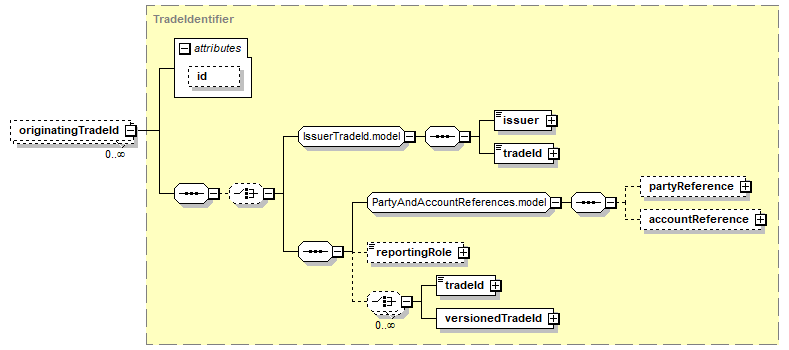element <originatingTradeId> (local)
Namespace: |
|
Type: |
|
Content: |
complex, 1 attribute, 7 elements |
Defined: |
|
XML Representation Summary |
<originatingTradeId |
|
|
|
> |
|
|
</originatingTradeId> |
Content model elements (7):
-
Included in content model of elements (22):
-
Annotation
The trade id of the trade(s) upon which this was based, for example the ID of the trade that was submitted for clearing if this is a cleared trade, or of the original trade if this was novated or cancelled and rebooked, or the list of trades that were netted or compressed together in the case of a compression event. The originatingEvent will explain why the trade was created; the existence and number of originatingTradeId elements should correspond to the originatingEvent, and they should be interpreted using that field. If the trade is inside a business event structure (such as a novation or a compression event) this element shuld not be populated; instead the event shoudl be used to represent the other trades.
XML Source (w/o annotations (1); see within schema source)

